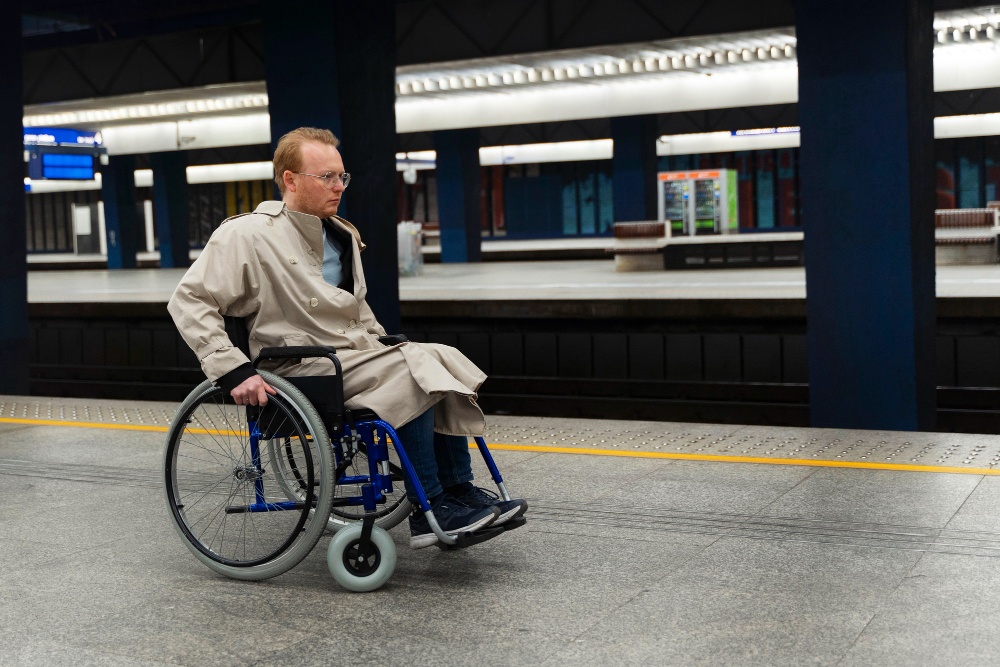7 Key Facts About Dialysis Transportation for Patients and Families
Dialysis is a life-sustaining treatment that over half a million Americans rely on weekly, and relia...
Created by: Daniel Ogunsemowo /
Vetted by:
Otse Amorighoye

Dialysis is a life-sustaining treatment that over half a million Americans rely on weekly, and reliable transportation is crucial for making these appointments consistently. Without a safe and dependable way to get to dialysis, patients risk serious health complications.
Missing even one treatment session can impact the effectiveness of dialysis, leading to worsening health issues and increased stress for both patients and their families. Patients who lack transportation often struggle to find consistent and comfortable options, adding unnecessary challenges to an already complex healthcare journey.
Imagine a service that is specifically designed to accommodate the needs of dialysis patients, providing a safe, timely, and reliable way to and from each appointment. In Chicago, DreamCareRides offers such a solution, helping patients manage their transportation smoothly, with compassionate drivers and wheelchair-accessible vehicles for those who need them.
If you or a loved one in Chicago requires reliable dialysis transportation, DreamCareRides is here to help. Call us at +1 708 505 6994 to book a ride and experience hassle-free transport to your dialysis sessions.
The Importance of Reliable Transportation for Dialysis Patients
Receiving regular dialysis is essential for patients with end-stage kidney disease, often requiring up to three appointments per week. Missing treatments can lead to severe health consequences, including fluid overload, high blood pressure, and even death in extreme cases. Reliable transportation not only enables patients to attend each appointment on time but also alleviates stress, allowing them to focus on their well-being rather than worrying about how they’ll get to their treatment.
Challenges Faced by Dialysis Patients in Accessing Transportation
Dialysis transportation presents several unique challenges:
Physical Limitations: Many dialysis patients have limited mobility, requiring wheelchair-accessible vehicles and assistance.
Health Risks: Transportation delays and stressful conditions can exacerbate health risks, especially for patients with comorbidities.
Financial Constraints: The costs of private transportation can add up quickly, especially for those on a fixed income or with insurance limitations.
Inconsistent Availability: Public transport options may not align with dialysis schedules, which typically require early morning or late-night rides.
7 Important Things to Know About Dialysis Transportation
1. Insurance Coverage for Dialysis Transportation
Patients often ask if Medicare, Medicaid, or private insurance will cover transportation costs. Many insurance plans, including Medicare Part B, offer limited non-emergency medical transportation (NEMT) coverage under certain conditions. Check with your insurance provider or healthcare team to confirm what your plan covers and if prior authorization is necessary.
2. Scheduling and Consistency Are Key
Since dialysis sessions are typically scheduled multiple times per week, consistent scheduling and punctuality are essential. Some transportation providers, like DreamCareRides, offer pre-scheduled rides to ensure patients never miss a session due to transportation issues.
3. Accessibility and Comfort for Mobility Challenges
Patients with mobility limitations may require vehicles equipped with wheelchair lifts and accessible seating. DreamCareRides offers specialized, wheelchair-accessible vehicles and trained drivers to ensure a safe and comfortable ride for all patients, making it a top choice in Chicago.
4. Availability of Same-Day or Emergency Rides
While it’s ideal to book rides in advance, same-day or emergency transportation may sometimes be required due to health complications or last-minute appointment changes. Look for a provider like DreamCareRides that can accommodate both pre-scheduled and urgent trips with ease.
5. Driver Training and Compassionate Care
Not all drivers are trained to work with medical patients, but companies like DreamCareRides prioritize hiring compassionate, trained professionals who understand the specific needs of dialysis patients. Patients feel more at ease knowing their drivers are sensitive to their health conditions.
6. Cost and Payment Options
The cost of transportation can vary based on the type of vehicle, distance, and required assistance. Many providers offer flexible payment plans, and some work directly with insurance companies to reduce out-of-pocket expenses. For dialysis patients in Chicago, DreamCareRides provides competitive rates and flexible payment options to ease financial stress.
7. Booking Flexibility and Customer Support
Reliable customer support is vital, especially when it comes to managing complex schedules. DreamCareRides offers a seamless booking process and responsive customer service to handle any scheduling adjustments or ride details, helping patients focus solely on their health.
Why Choose DreamCareRides for Dialysis Transportation in Chicago?
For dialysis patients in Chicago, DreamCareRides offers a dedicated, patient-focused service tailored to meet unique transportation needs. With wheelchair-accessible vehicles, trained drivers, and a commitment to punctuality, DreamCareRides is a reliable choice. We understand the complexities of dialysis care and make every effort to provide a safe, comfortable, and stress-free transportation experience. To book your ride, call us at +1 708 505 6994.
Conclusion
Dialysis transportation is an essential yet often challenging aspect of care for patients who rely on regular treatment to maintain their health. By considering factors such as insurance coverage, vehicle accessibility, driver training, and flexibility in scheduling, patients can choose a transportation provider that aligns with their specific needs. DreamCareRides in Chicago makes the choice simple, offering a dependable service that prioritizes patient well-being. For reliable, comfortable, and timely dialysis transportation, reach out to DreamCareRides today at +1 708 505 6994.
FAQs
1. Does Medicare cover transportation to dialysis appointments?
Medicare Part B may cover certain NEMT services, but it often requires specific eligibility and prior authorization. Check with your insurance provider for details.
2. How do I book a ride with DreamCareRides?
Booking is simple. Call DreamCareRides at +1 708 505 6994 to speak with a representative who can schedule your ride based on your dialysis appointments.
3. What if I need wheelchair-accessible transportation?
DreamCareRides offers wheelchair-accessible vehicles equipped with lifts, ensuring a safe and comfortable ride for patients with mobility challenges.
4. Can I book same-day rides with DreamCareRides?
While it’s best to schedule in advance, DreamCareRides offers flexibility for same-day or emergency rides when available. Call +1 708 505 6994 for assistance.
5. How much does transportation with DreamCareRides cost?
The cost varies based on factors like distance and vehicle type. DreamCareRides offers competitive rates and flexible payment options to accommodate dialysis patients’ budgets.
DreamCareRides is dedicated to offering reliable, accessible, and compassionate transportation services to dialysis patients across Chicago. For any further questions or to schedule a ride, call us directly at +1 708 505 6994.
Related Articles
Veteran’s Day: Essential Transportation Tips for Veterans in Need of NEMT Services
10 Meaningful Ways to Spend Quality Time with Your Grandparents During Christmas
Best Practices for Communicating with People with Disabilities
Ensuring On-Time Medical Appointments for Chicago Patients with DreamCareRides
Essential Airport Transportation Tips for Disabled Travelers





